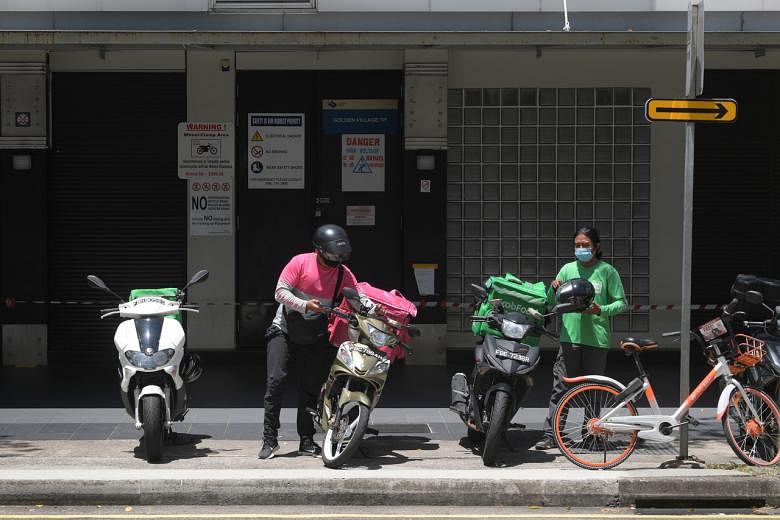SINGAPORE - The pandemic has drawn attention to the substantial number of self-employed people in Singapore, and the authorities will continue to look into how they can be better supported, Deputy Prime Minister Heng Swee Keat said on Tuesday (Feb 23).
This diverse group may include those taking on gig jobs like food delivery temporarily, and those who take on such jobs on a part-time basis, Mr Heng noted.
There are also those who do not file taxes or have Central Provident Fund contributions - which is why the Government does not have comprehensive data on this group of workers, he told participants at a post-Budget forum broadcast on Channel 8.
"It was only after the pandemic that we realised that there were so many self-employed workers... so we will further investigate how we can assist the self-employed, Mr Heng said in Mandarin.
He addressed questions from participants on the Budget, focusing on themes such as the impact of the pandemic on individuals and businesses, and support measures for vulnerable groups.
Asked by host Tung Soo Hua about support for older workers, who may face discrimination and barriers when it comes to employment, Mr Heng said businesses also play an important role, besides policy measures such as raising the retirement and re-employment age. Workers, on their part, also need to continually update their skills.
"I hope we can study how to further enhance our efforts in helping older workers with employment and transitioning to different jobs," he told the participants, who included younger and older workers as well as business owners.
Madam Annie Chan, the second-generation owner of Mummy Yummy - a food business that also distributes free food to vulnerable groups - noted that while families in rental flats were quite well provided for during the pandemic, some middle-income families have been hit hard. However, they may not qualify for assistance as they do not meet the criteria, she said.
Mr Heng, who is also Finance Minister, agreed that the pandemic has affected Singaporeans across income brackets, including those in the middle-income group.
In Budget 2021, as well as last year's Budget, the Government supported middle-income households with measures that help Singaporeans to retain their jobs as far as possible.
"If we can help to protect workers' rice bowls, then it can also help safeguard their livelihoods and support their families," said Mr Heng.
Charity and volunteering efforts are also important in helping the vulnerable, he said, urging more Singaporeans to contribute, given that the country's needs in this area will continue to grow.
On the planned goods and services tax (GST) hike between next year and 2025, Mr Heng said that it is necessary to fund Singapore's rising expenditure needs.
But a $6 billion Assurance Package that has been set aside will effectively delay the impact of the GST increase for lower-income Singaporeans for 10 years, while this impact will also be delayed for the majority of Singaporean households for at least five years.
He also noted that the introduction of a new framework for borrowing to finance major infrastructure projects is an equitable one, given that it helps to spread the costs of these projects over several generations.
If the economy rebounds, Mr Heng hopes that schemes like the SGUnited Traineeships Programme, which allows fresh graduates to go through an attachment at a company while receiving an allowance, will no longer have to be extended. "Ideally, companies will be able to hire graduates straight out of school," he said.
But if the Covid-19 situation takes a turn for the worse, or if the global economy does not recover soon, more Budgets could be rolled out to help Singaporeans, Mr Heng added.


